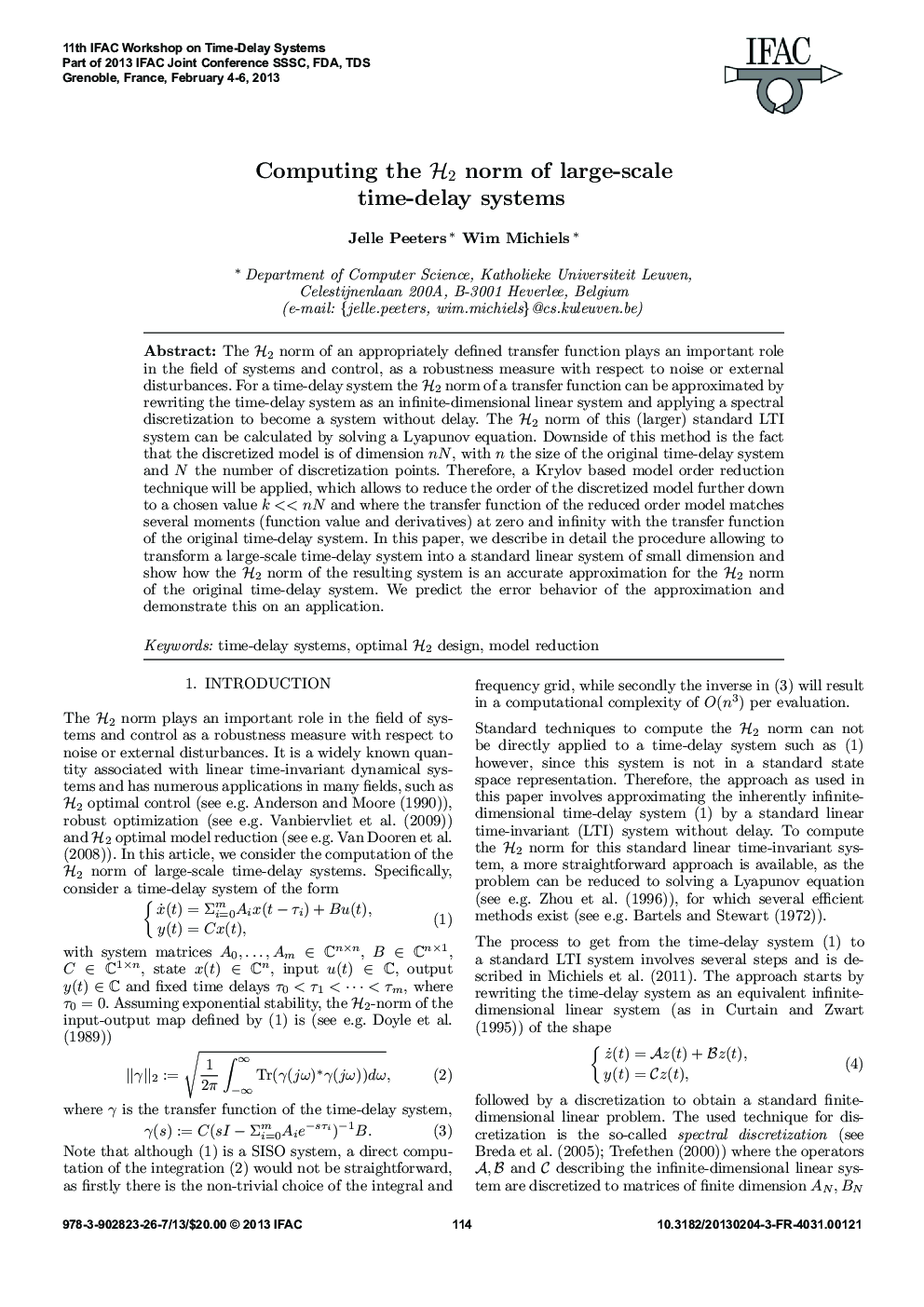| کد مقاله | کد نشریه | سال انتشار | مقاله انگلیسی | نسخه تمام متن |
|---|---|---|---|---|
| 717053 | 892232 | 2013 | 6 صفحه PDF | دانلود رایگان |

The H2 norm of an appropriately defined transfer function plays an important role in the field of systems and control, as a robustness measure with respect to noise or external disturbances. For a time-delay system the H2 norm of a transfer function can be approximated by rewriting the time-delay system as an infinite-dimensional linear system and applying a spectral discretization to become a system without delay. The H2 norm of this (larger) standard LTI system can be calculated by solving a Lyapunov equation. Downside of this method is the fact that the discretized model is of dimension nN, with n the size of the original time-delay system and N the number of discretization points. Therefore, a Krylov based model order reduction technique will be applied, which allows to reduce the order of the discretized model further down to a chosen value k << nN and where the transfer function of the reduced order model matches several moments (function value and derivatives) at zero and infinity with the transfer function of the original time-delay system. In this paper, we describe in detail the procedure allowing to transform a large-scale time-delay system into a standard linear system of small dimension and show how the H2 norm of the resulting system is an accurate approximation for the H2 norm of the original time-delay system. We predict the error behavior of the approximation and demonstrate this on an application.
Journal: IFAC Proceedings Volumes - Volume 46, Issue 3, 2013, Pages 114-119